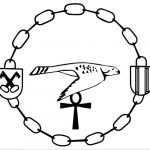Studentenvereniging Ontwikkelingssamenwerking Leiden (SOL)
Studeren in Leiden
Leiden is een historische stad in Nederland met een lange academische traditie.
Als student in Leiden kun je deelnemen aan verschillende studentenverenigingen. Deze verenigingen bieden studenten de mogelijkheid om zich te ontwikkelen op persoonlijk, sociaal en cultureel gebied. Bovendien zijn ze een goede manier om nieuwe mensen te ontmoeten en je netwerk te vergroten.
Een studentenvereniging is een vereniging die speciaal is opgericht voor studenten. De verenigingen hebben als doel het bevorderen van de vriendschap tussen de leden en het stimuleren van hun ontwikkeling op persoonlijk, sociaal, cultureel en academisch gebied.
De oorsprong van studentenverenigingen ligt in de middeleeuwen, toen universiteiten nog maar net waren opgericht. Studenten kwamen uit heel Europa naar de universiteiten toe om te studeren en zochten elkaar op om steun te vinden in een vreemde omgeving. De studentenverenigingen die toen ontstonden, hadden als doel de belangen van de studenten te behartigen en de onderlinge band te versterken.
Hieronder vind je een overzicht van enkele studentenverenigingen in Leiden:
Zoek hier op google naar studentenverenigingen in Leiden
A.L.S.V. Quintus
A.L.S.V. Quintus is opgericht in 1890 en is een van de oudste studentenverenigingen in Leiden. De vereniging biedt studenten de mogelijkheid om zich te ontwikkelen op persoonlijk en sociaal gebied. Quintus organiseert verschillende activiteiten, zoals borrels, feesten, sportevenementen en culturele activiteiten.
Adres: Kaiserstraat 25-27, 2311 GN Leiden Telefoon: 071-5120030 Website: https://alsvquintus.nl/
L.S.V. Minerva
L.S.V. Minerva is opgericht in 1814 en is daarmee de oudste studentenvereniging van Nederland. De vereniging heeft als doel het bevorderen van de vriendschap tussen de leden en het stimuleren van hun ontwikkeling op cultureel, intellectueel en sportief gebied. L.S.V. Minerva organiseert verschillende activiteiten, zoals feesten, borrels, lezingen en sportevenementen.
Adres: Breestraat 50, 2311 CS Leiden Telefoon: 071-5120636 Website: https://www.lsvminerva.nl/
L.V.V.S. Augustinus
L.V.V.S. Augustinus is opgericht in 1893 en is een van de grootste studentenverenigingen van Leiden. De vereniging heeft als doel het bevorderen van de vriendschap tussen de leden en het organiseren van activiteiten op het gebied van cultuur, sport, maatschappij en wetenschap. L.V.V.S. Augustinus organiseert onder andere feesten, borrels, lezingen en sportevenementen.
Adres: Rapenburg 24, 2311 EV Leiden Telefoon: 071-5123300 Website: https://www.lvvsaugustinus.nl/

L.V.V.S. Catena
L.V.V.S. Catena is opgericht in 1956 en is een alternatieve studentenvereniging. De vereniging heeft als doel het bieden van een alternatief voor de traditionele studentenverenigingen en het bevorderen van de vriendschap tussen de leden. L.V.V.S. Catena organiseert verschillende activiteiten, zoals feesten, borrels, concerten en filmavonden.
Adres: Middelstegracht 38-40, 2312 TT Leiden Telefoon: 071-5125083 Website: https://www.vslcatena.nl/
Tegenwoordig zijn studentenverenigingen nog steeds erg populair onder studenten. Ze bieden studenten de mogelijkheid om zich te ontwikkelen op persoonlijk en sociaal gebied, nieuwe mensen te ontmoeten en hun netwerk uit te breiden. Daarnaast organiseren studentenverenigingen verschillende activiteiten, zoals feesten, borrels, sportevenementen, culturele activiteiten en lezingen.
Het nut van een studentenvereniging is dat het een waardevolle aanvulling kan zijn op de studie en de studententijd. De vereniging biedt studenten de mogelijkheid om zich te ontwikkelen op persoonlijk en sociaal gebied en om nieuwe vaardigheden op te doen. Daarnaast biedt het lidmaatschap van een studentenvereniging een netwerk van gelijkgestemde studenten, wat kan leiden tot vriendschappen voor het leven en interessante carrièrekansen.
Kortom, studentenverenigingen hebben als doel het bevorderen van de vriendschap tussen de leden en het stimuleren van hun ontwikkeling op persoonlijk, sociaal, cultureel en academisch gebied. Ze bieden studenten een waardevolle aanvulling op de studie en de studententijd, en bieden de mogelijkheid om nieuwe vaardigheden op te doen en interessante carrièrekansen te ontdekken.

